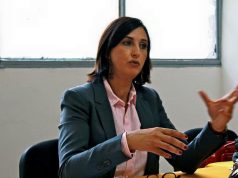[symple_box color=”blue” text_align=”left” width=”100%” float=”none”] Mouaad Boubakri is a Teacher Trainee at ENS (Ecole Normale Supérieure- Rabat). He received his DEUG diploma at Ibn Zohr University of Agadir in 2014.
Mouaad Boubakri is a Teacher Trainee at ENS (Ecole Normale Supérieure- Rabat). He received his DEUG diploma at Ibn Zohr University of Agadir in 2014.
[/symple_box]
Nelson Mandela once said that “Education is the icon of change”. Education is by all the odds at the heart of the progress and development of any nation on earth. The level of evolution of any society can be measured by the success or failure of its educational system. Many countries around the globe such as Finland, Greece, Japan, Turkey, and the U.S. have met outstanding outcomes in the field of education. The case of Morocco has sparked debate amongst policy makers, educators, and teachers about the reason behind the failure of the country’s educational system. Today, the success of any given educational system can be based upon many standards. The first one is the implementation of technology in education. The second standard is the type of relationship between teachers and students, and finally, the last standard is the driving force that triggers teachers to take on the teaching profession in the first place.
It is taken for granted that education is at the heart of planting the seeds that will bring about intellectual elite, a rich reservoir of knowledge and a human desire that will create change. In this view, this piece of writing is a take on tackling, particularizing, and reflecting upon the bitter situation the Moroccan educational system is going through, especially if contrasted to the American one.
Technology can be seen today as a must that will trigger any given educational system towards success and prosperity. In this vein, the lack of technology can hinder any country’s chances in evolving its educational system. Here, I tried to make a short comparison between Morocco and the U.S. in this aspect by asking American students various questions about the American educational system.
Mariel Fechik, a student at Illinois University, told me that the American educational system relies more on technology as a sophisticated tool to promote and enhance the status of education. She stated that “It is beginning to depend heavily on technology. Classrooms have smartboards, computers, and more and more projects are being conducted online”. In contrast to this, black board and white chalk are the most essential component of any classroom in Morocco and Technology still does not prove itself, especially that many universities around the country suffer from overcrowding.
The type of relationship between teachers and their students can also be considered as an integral standard when it comes to judging whether a specific educational system is successful or not. According to my experience as a student at university, I recall that most of our teachers were difficult to deal with. In Morocco, the role of the teacher encompasses only giving lectures. Most teachers in many Moroccan universities do not even give their students enough time to voice their needs or ask questions. Again, as opposed to the United States, Fichik said that “I have had professors that I’m extremely close to. In general, teachers are always available to help students and really care about their students”. From the latter, we can obviously feel the difference between the Moroccan context and its American counterpart. Teachers in many states in the U.S. are fully open to their students and are constantly ready to offer help. Aside from Fechik, Caitlin McAteer, an American Fulbright at ENS (Ecole Normale Supérieure- Rabat), told me that teachers are constantly accessible and they are ready to answer any question raised.
The perception that teachers hold of the teaching profession is one of the most important principles in the field of education. In Morocco, most students who take on the teaching profession seek to become teachers mainly to meet their daily needs and avoid the zone of joblessness and misery. When I asked Fechik again about the rationale behind her strong desire to become a teacher, her answer was really reasonable and logical. She said: “I want to teach students how to think critically about their world. Being a teacher can incite more change than almost any other profession”. Here again, the case in the U.S. is totally different from the one in Morocco. Students have strong will and determination to become teachers simply because they like to share knowledge and shape the students’ minds. Besides, the love of the teaching profession is also what makes every teacher keen on taking this profession.
Education is the backbone of any country’s prosperity and development. By and large, the public opinion is not actually satisfied with the grim, and bitter situation the Moroccan educational system is going through. It is a prime time for all of us to think about urgent solutions to heal the wounds of our educational system.






